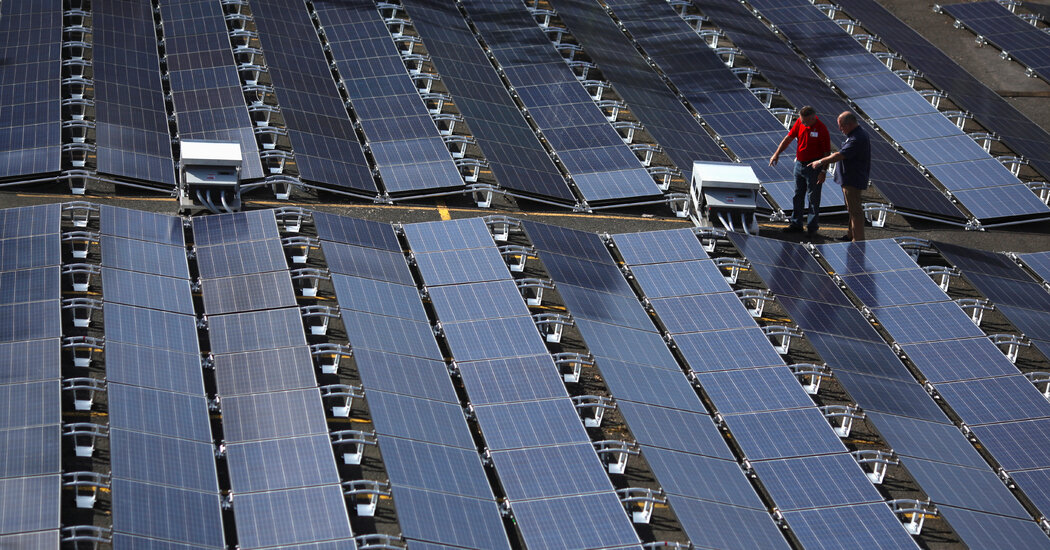The federal government plans to reimburse state and local governments that rebuild damaged public buildings to be more energy resilient.
The Federal Emergency Management Agency will begin paying to install solar panels on schools, hospitals and other public buildings that are rebuilt after disasters, making them more resilient against future disasters while reducing greenhouse gas emissions.
The change, set to be announced on Tuesday, reflects the disaster agency’s decision to use federal dollars to expand renewable energy as it copes with worsening climate shocks.
The number of billion-dollar weather disasters keeps rising, straining the country’s ability to respond, as well as the ability of local officials to keep offering basic services to residents.
“If you’re installing solar panels, you are creating more energy independence,” Deanne Criswell, FEMA’s administrator, said in an interview.
The change comes amid major shifts in America’s response to disasters. Insurers are withdrawing from high-risk areas. People are donating directly to survivors through the crowdfunding platform GoFundMe, although that money largely benefits the wealthy. FEMA is overhauling its programs to help individual disaster survivors, after acknowledging that the current programs often fail to provide adequate support.



As a counterpoint, disasters are unpredictable, so you can’t say that the buildings themselves will be destroyed again, nor can you say “well, guess y’all dont get schools and utilities since a disaster destroyed them.”
Improving energy efficiently and adding renewal resources is far easier and cheaper to do at time of construction, so its a solid move to add funding for a building that you know will be rebuilt either way.
That’s solid. It’s not that I think we shouldn’t rebuild in those communities, I’m grousing at the perceived unfairness of favoring higher risk areas for renewables, but the new building/retrofit line of thought is a good one, and makes a lot of sense.